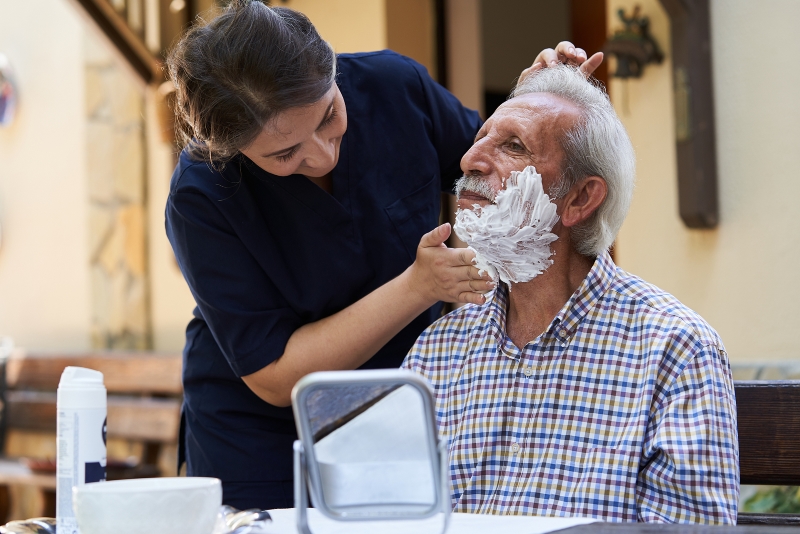Is your elderly family member planning to remain in her own home for as long as possible? That’s called aging in place and eventually she may find that it’s a lot easier to do if she has the right help in place at the right time. Some of the biggest tasks she may need to accept help with can include personal care tasks.
Personal Care Defined
Personal care involves assisting with daily personal living tasks. These are tasks that involve personal hygiene and that your aging family member needs to do every day. These types of tasks are ones that can help your senior to be healthier and safer at home if she has assistance.
Types of Personal Care Tasks
As to what the specific personal care tasks might be, they can include:
- Dental hygiene
- Bathing
- Dressing
- Hair care
- Makeup
- Foot and nail care
- Transition assistance
- Incontinence care
There are a variety of other types of care tasks that can be considered part of personal care as well. Skipping these tasks really isn’t an option for your senior. Proper bathing and changing clothes helps your senior’s skin to remain healthy. Avoiding tasks that keep her skin healthy can eventually cause her to deal with some serious health issues that may take away her ability to age in place at all.
Personal Care Can Be Intimidating for Your Senior
Accepting help with personal care tasks can be incredibly embarrassing. Most people have not needed help with these sorts of tasks since they were young children. After decades of dressing herself and bathing herself, your elderly family member may argue that she doesn’t need help from caregivers in order to live her life.
Personal Care Is Crucial for Aging in Place
But the reality is that personal care at home is absolutely essential if she’s planning to age in place. Aging in place involves your elderly family member remaining in her own home and it’s possible for a long time, as long as your senior has help when she needs it. Help from home care providers with personal care tasks ensures that your senior is safe and that she’s also comfortable.
As Needs Change, Care Can, Too
Over time your elderly family member’s needs for personal care at home may start to slowly increase. At first, she may only need a little bit of help with personal care tasks that are becoming difficult. That might include things like taking care of her feet or applying lotions to parts of her body that are difficult to reach. Eventually she may find that having help with bathing, washing her hair, and getting dressed keeps her safe and ensures that she’s not skipping over those tasks more often than not.
Introducing personal care at home for your senior may be best to do when she only needs a little bit of help. This can ease her into accepting assistance, so that when she does need much more help, she has a better feel for how that help will work for her.

